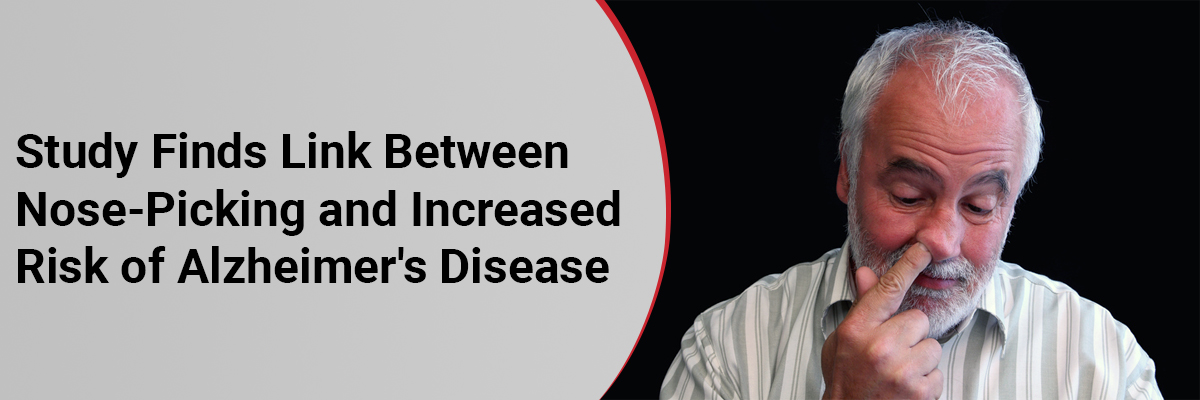
 IJCP Editorial Team
IJCP Editorial Team
Study finds link between nose-picking and increased risk of Alzheimer's disease
A recent study has linked nose-picking to an increased risk of Alzheimer's disease.
The study suggests that habitual and aggressive nose-picking could damage internal tissues, making it easier for certain bacteria to enter the brain and cause symptoms similar to Alzheimer's. Although occasional and gentle nose-picking may not yield harm, chronic inflammation and injury to the nasal lining caused by habitual and aggressive nose-picking can cause chronic inflammation in the nasal cavity and trigger an inflammatory response in the hippocampus, a region critical for memory and learning.
Dr. Madhukar Bhardwaj, Senior Consultant & HOD, Neurology, Aakash Healthcare, New Delhi, explains that "Alzheimer's disease, a progressive neurodegenerative disorder, remains a major problem in the elderly population. Although genetics and age have been long-established risk factors for Alzheimer's, recent investigation has unveiled a surprising link between apparently harmless habits, like nose-picking, and an augmented risk of acquiring this debilitating condition."
Apart from nose-picking, several other habits can impact brain health and increase the risk of Alzheimer's disease, including poor sleep, a sedentary lifestyle, an unhealthy diet, chronic stress, and social isolation.
Practicing gentle and infrequent nose-blowing rather than aggressive nose-picking, getting adequate sleep, engaging in regular physical exercise, maintaining a healthy diet, managing stress effectively, and staying socially active are all necessary steps toward promoting brain health and reducing the risk of Alzheimer's disease. Experts advise staying vigilant regarding the onset of any new symptoms, such as memory loss, forgetfulness, and behavioral changes like confusion and irritability.

IJCP Editorial Team
Comprising seasoned professionals and experts from the medical field, the IJCP editorial team is dedicated to delivering timely and accurate content and thriving to provide attention-grabbing information for the readers. What sets them apart are their diverse expertise, spanning academia, research, and clinical practice, and their dedication to upholding the highest standards of quality and integrity. With a wealth of experience and a commitment to excellence, the IJCP editorial team strives to provide valuable perspectives, the latest trends, and in-depth analyses across various medical domains, all in a way that keeps you interested and engaged.










.jpg)








.jpg)

Please login to comment on this article